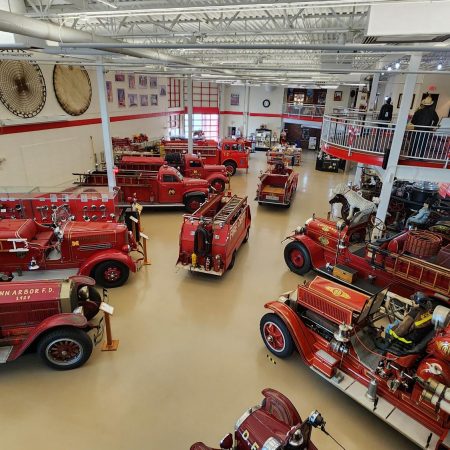CuriosiD: What happens to old fire trucks in Detroit?
WDET’s CuriosiD series answers your questions about everything Detroit. Subscribe to CuriosiD on Apple Podcasts, Spotify, NPR.org or wherever you get your podcasts.
In this episode of CuriosiD, we answer the question:
“What happens to old fire trucks in Detroit?”
Fire trucks are among the most recognizable vehicles on the road. They’re big, red, loud, and built to respond when lives are on the line. But what happens when these machines are retired from service?
WDET listener and Detroit Fire Department cadet Kevin Snook reached out to CuriosiD to find out.
“I have family that are first responders,” Snook told WDET. “My dad was a cop for many years, but I decided to take a different route right out of high school, and that led me to the fire service. I’ve been seeing a lot of different trucks at the stations and started wondering — where do they all go when they’re retired?”
The short answer
There’s no single answer, but the journey of a fire truck after its last alarm can take a few surprising turns.
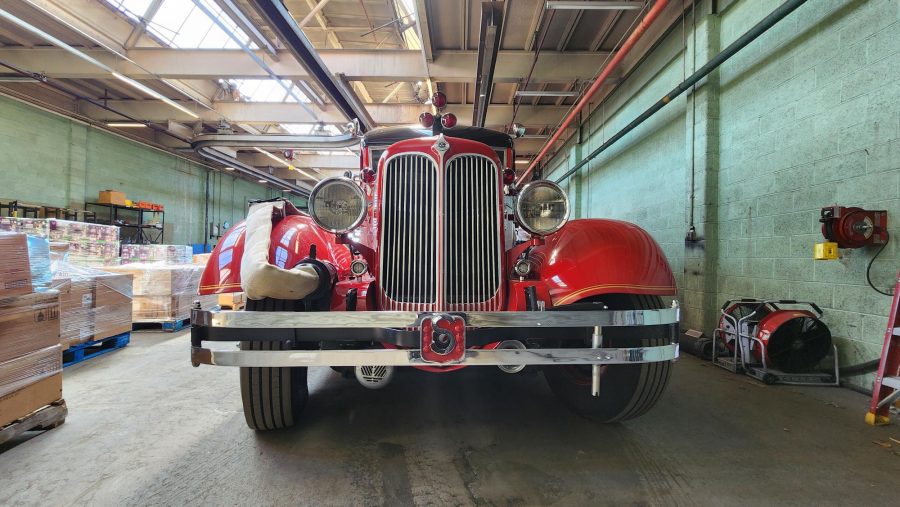
Fire trucks have deep roots in Michigan’s automotive past
Detroit has long been home to some of the most well-known fire truck brands in the country. That includes Spartan Motors, based in Charlotte, Michigan, and Seagrave Fire Apparatus, which started in Rochester in the 1800s.
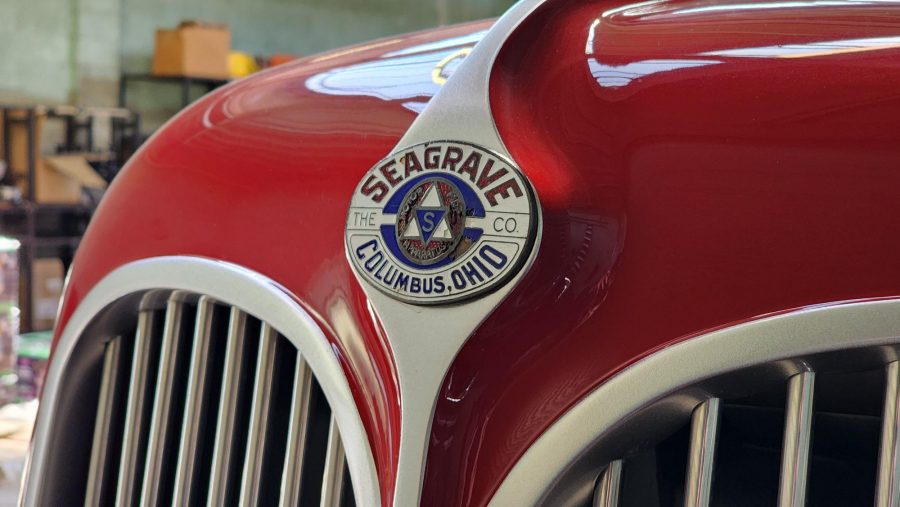
“Fredrick Seagrave originally made ladders for apple picking,” said David Egeler, director of operations at the Michigan Firehouse Museum in Ypsilanti. “His equipment became popular, and his business grew so much that he moved into the city in 1881.”
Seagrave later moved to Columbus, Ohio, and now operates out of Wisconsin. It’s the oldest continuously operating fire apparatus manufacturer in the country, and many older rigs in metro Detroit still bear the Seagrave name.
The Michigan Firehouse Museum maintains 15 vintage fire trucks, all in running condition. Some of them still roll out for local parades and events.
“When Michigan won the national football championship and had their parade in Ann Arbor, we took three of our fire trucks,” Egeler says. “Coach Harbaugh, team captains, and staff rode on them.”
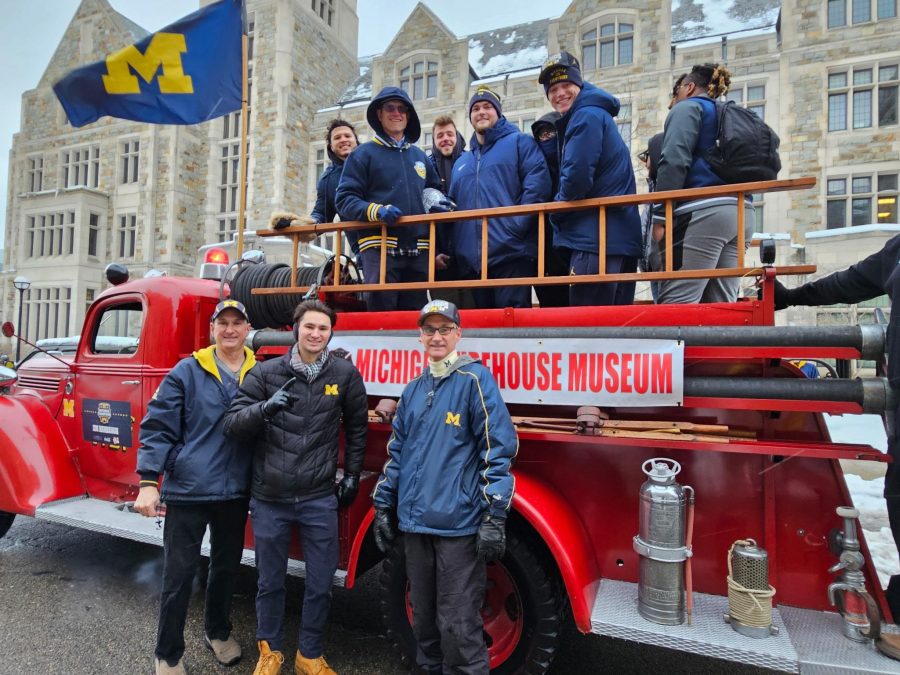
Some end up in collections, others are scrapped
There’s a collector’s market for fire trucks, much like classic cars. Egeler says some retired firefighters buy trucks they once worked with, while others look for specific models or brands.
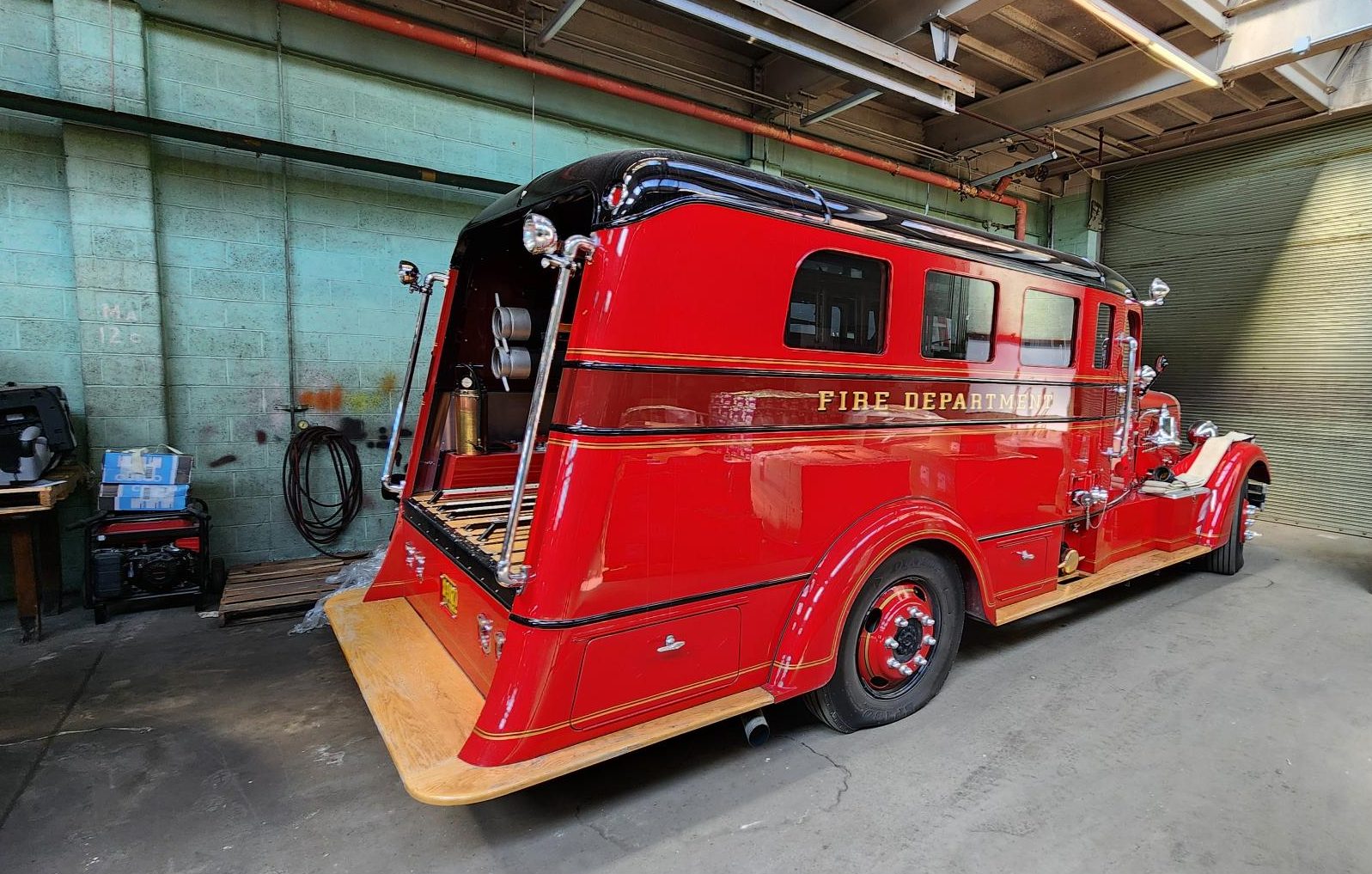
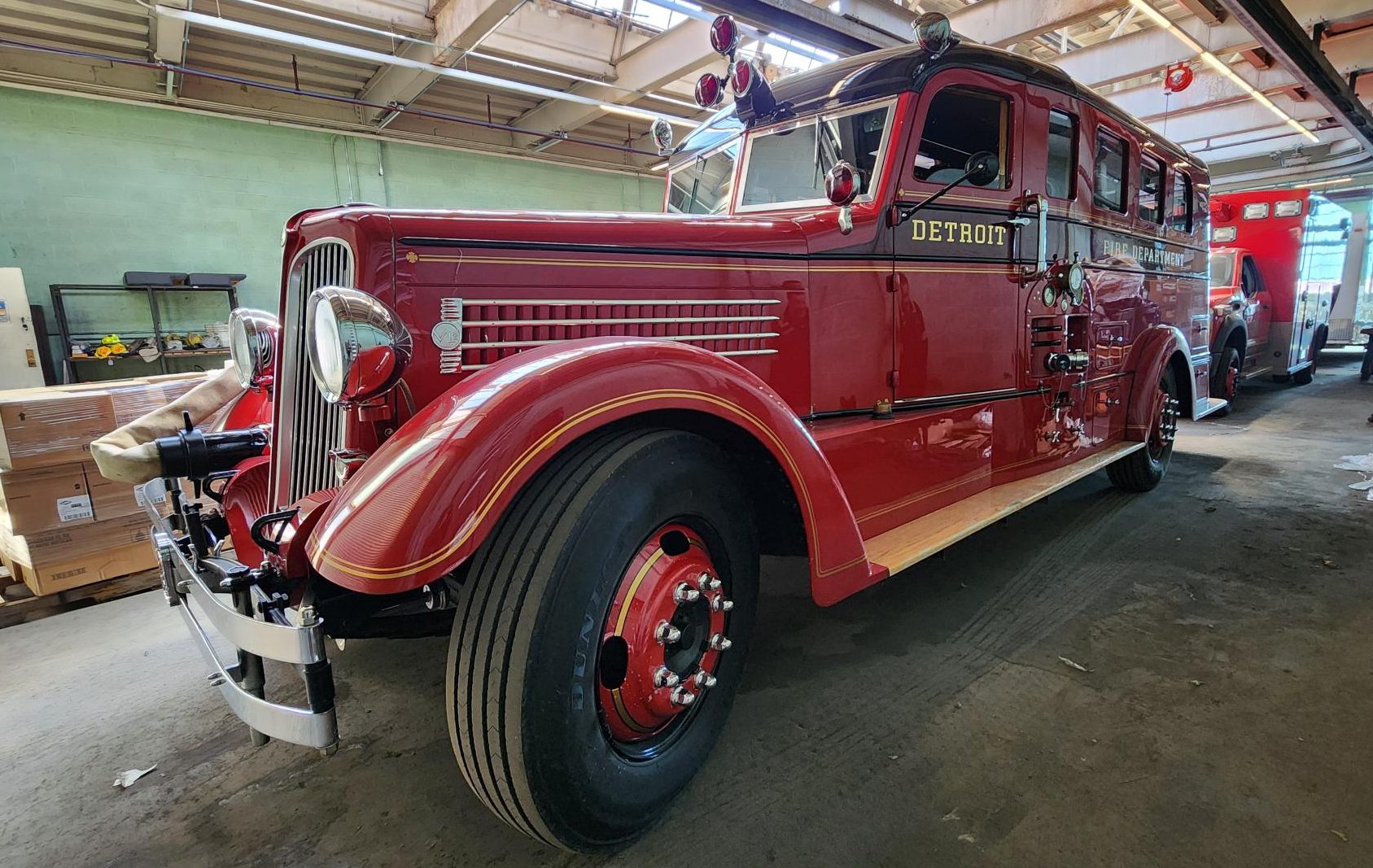
A second life in service of remembrance
One notable exception is a restored 1937 Seagrave safety sedan used by the Detroit Firemen’s Fund Association.
“Traditionally, we’d place a firefighter’s casket on top of a fire engine during funeral processions,” says John Bozich, a trustee with the association. “But modern trucks are too large for that.”
To honor fallen firefighters in a more fitting way, the group restored the 1937 sedan. It looks original from the outside, but inside, it’s a complete rebuild —new engine, wheels, transmission, and frame.
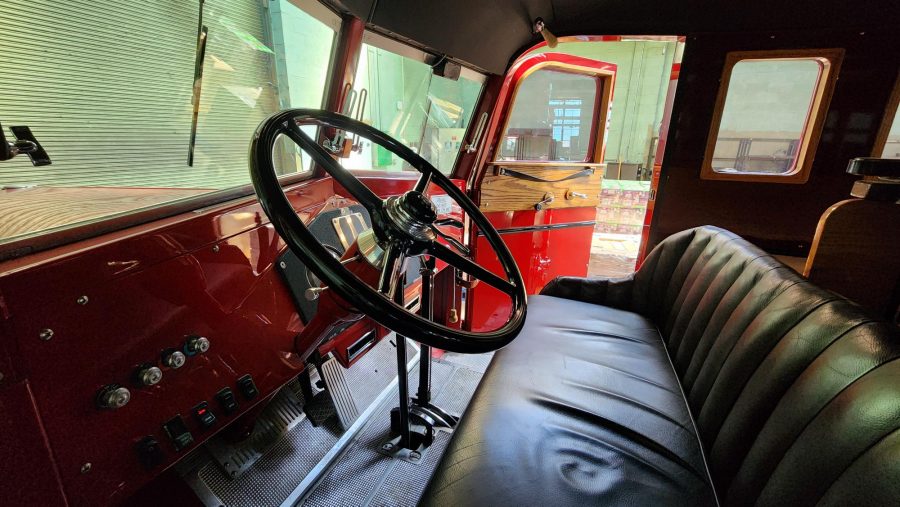
“There were less than 100 made and Detroit bought 93 of them,” says Arnie Nowicki — a retired Detroit fire chief who helped lead the restoration project. “Those apparatus became known world-wide as the Detroit safety sedan.”
The $300,000 restoration, funded through donations and volunteer work, now allows the vehicle to be used for funerals throughout the region.
“Where the hoses used to go in the back, that’s where the casket is placed,” Bozich said. “There’s also room for pallbearers inside.”
Mark Bilancetti, a machinist with the Detroit Fire Department, was one of the first volunteers to help with the restoration and has maintained the vehicle ever since.
“It’s been a labor of love,” Bilancetti said. “We let the firefighter’s children or grandchildren ride up front, ring the bell, step on the siren. It means a lot to families.”
So where do fire trucks go when they retire?
Most are scrapped or sold off, but some live on for decades as museum pieces, collector items, or tools of remembrance.
“It’s easier to celebrate a firefighter’s life when you can take them to their final resting place in something that meant so much,” Bilancetti said.
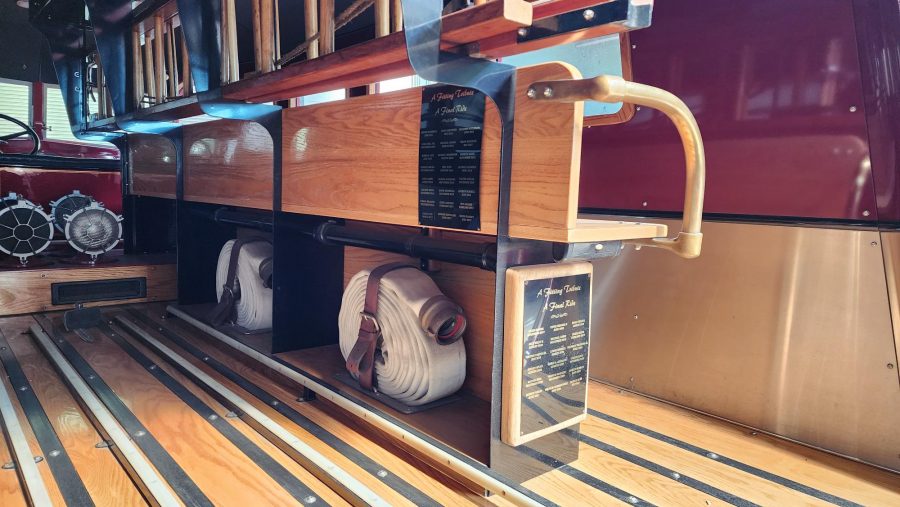
We want to hear from you!
Have a question about southeast Michigan’s history or culture?
Send it our way at wdet.org/curiosid, or fill out the form below. You ask, we answer.
More from CuriosiD:
Want more stories like this? Sign up for WDET’s weekly newsletter and never miss a curiosity uncovered.
Trusted, accurate, up-to-date.
WDET strives to make our journalism accessible to everyone. As a public media institution, we maintain our journalistic integrity through independent support from readers like you. If you value WDET as your source of news, music and conversation, please make a gift today.
The post CuriosiD: What happens to old fire trucks in Detroit? appeared first on WDET 101.9 FM.
